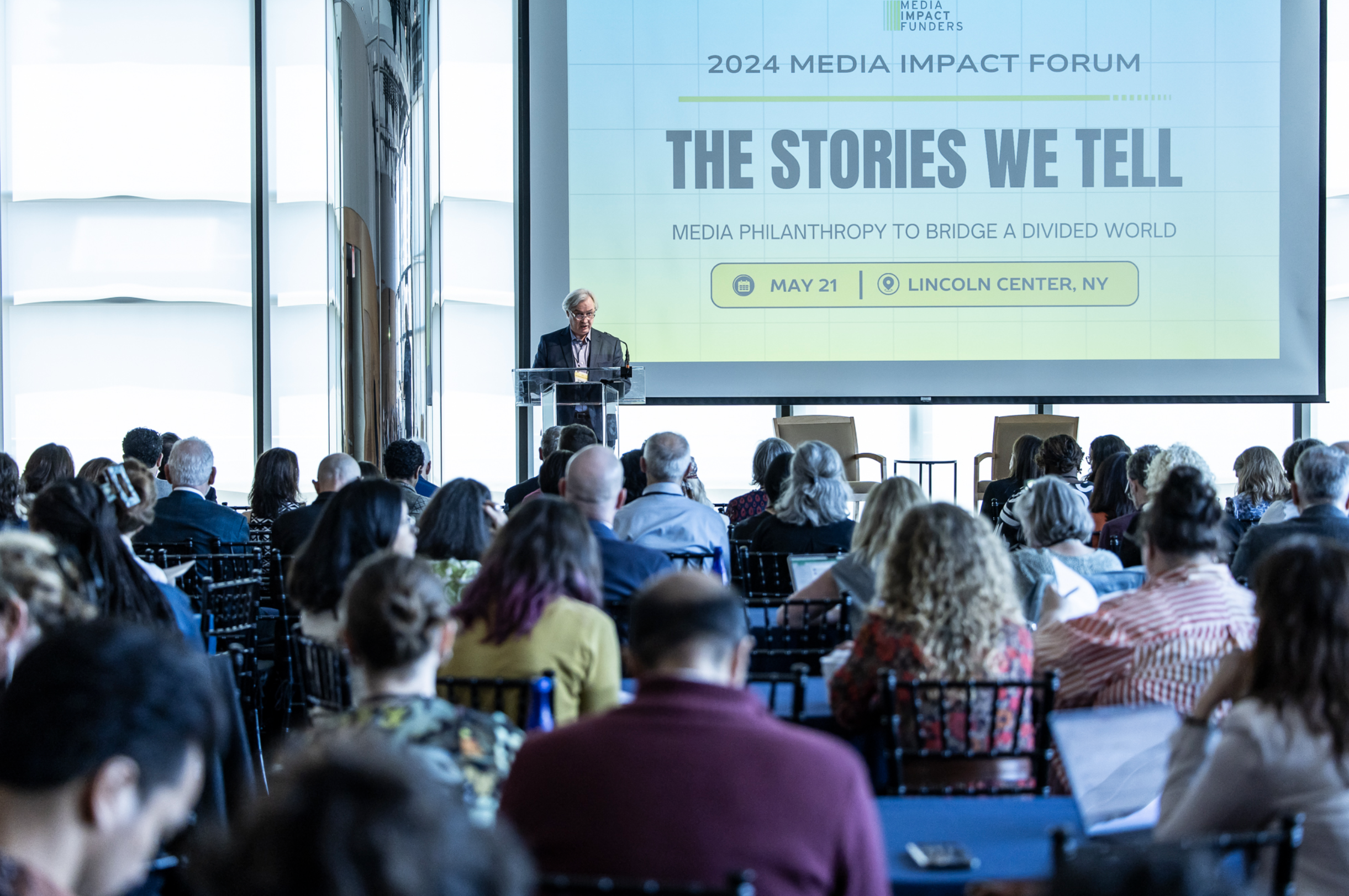DCS digs into the future of journalism funding across the globe with Media Impact Funders
On July 23, Dot Connector Studio’s co-founder Katie Donnelly will be speaking at a funders-only event hosted by Media Impact Funders (MIF) and Philea to present findings from A Snapshot of Global Journalism Funding in 2024. DCS produced this report on behalf of MIF and the Bill & Melinda Gates Foundation to provide deeper insights into the strategies funders are using to support journalism. In combination with this report, which Donnelly wrote with DCS Research Associate Jenna Rines, we also conducted complementary research on how 25 of the top journalism funders are funding journalism.
This report builds on work we’ve done with MIF to track trends in philanthropically-funded media for more than a decade. From 2013-2020, we co-led the organization’s program on media impact, culminating in a report and talk at the Sundance Film Festival. This May, Donnelly and Associate Director Evan Walsh attended MIF’s flagship event, the Media Impact Forum, at Lincoln Center in New York City, where Walsh represented DCS’s research efforts in understanding philanthropically-supported media addressing climate change.
At the Media Impact Forum, Donnelly presented highlights from the Snapshot report. As we describe in the report, the journalism field is currently facing intersecting crises—including the decline in journalists’ safety worldwide, the rise of authoritarianism and democratic backsliding, the breakdown of traditional news business models, the disruption of social media due to a surge in AI-generated content, and the increasing trend of news fatigue and avoidance among readers.
We don’t have the answers to these crises, but our research illuminates how journalism funders are thinking about them. We designed our report to be a conversation starter, and the discussion at the Media Impact Forum focused on one key finding: the lack of focus on keeping journalists safe among surveyed funders.
With nearly 800 journalists—including Wall Street Journal reporter Evan Gershkovich—imprisoned around the world simply for doing their jobs, the threats are real and severe. At least 120 journalists and media workers were killed on the job last year, and many more have been threatened with legal action by powerful actors to shut down reporting. This is happening across the globe, including in America. An increasing number of journalists are now operating as freelancers, without legal protections from employers, which means their safety is becoming even more precarious.
As part of this research, we interviewed journalists in Nigeria and Ukraine who highlighted the need for attention to this issue. At Progress Radio in Gombe, Nigeria, journalists described numerous challenges and dangers, including threats, harassment, bribery, media equipment confiscation, violence, and imprisonment. A lack of funding exacerbates these issues, as financial resources are crucial for accessing legal support and enabling independent reporting on challenging topics such as the ongoing Boko Haram insurgency, illegal mining, corruption, and kidnapping. Journalists in both Nigeria and Ukraine expressed how difficult it is to perform their jobs amid personal safety risks and inadequate infrastructure. Despite these challenges, they stressed the importance of their work in bringing significant stories to light. As a Ukrainian journalist from The Kyiv Independent told us: “If we stop, we die.”
Our goal is for this report to draw funders’ attention to this key issue, and contribute to reversing these troubling trends. On the plus side: funders are overwhelmingly optimistic about philanthropy’s opportunity to make a difference in the field of journalism. Let’s hope they are right.

